5th ESLR Workshop: Social Learning Across the Lifespan and Generations
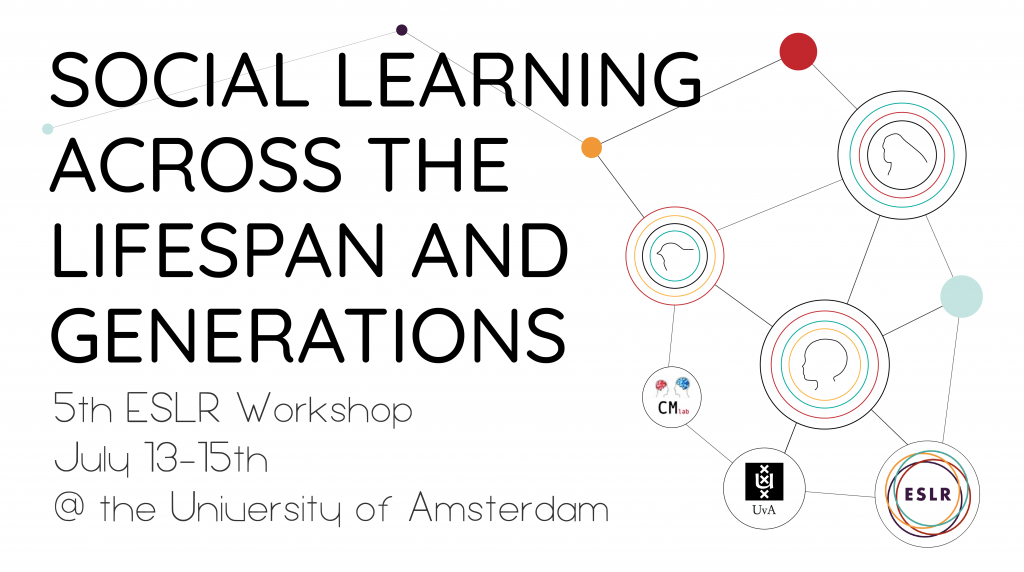
The workshop will be centered around the themes of development and evolution of social learning, both in humans and non-human animals. It will offer an opportunity to hear from inspiring keynote speakers and will also offer early career researchers the chance to present their work to an interdisciplinary audience, and to take part in workshops that can enrich their methodological skills. Participants will be able to share their work in the form of short 15 min talks (10 min talk + 5 min questions), or posters.
Registration is now open! The deadline for registering is June 13th, 2022. Register here: https://forms.gle/k8ehtu94pugyN8aN6
Short Program

Keynote 1
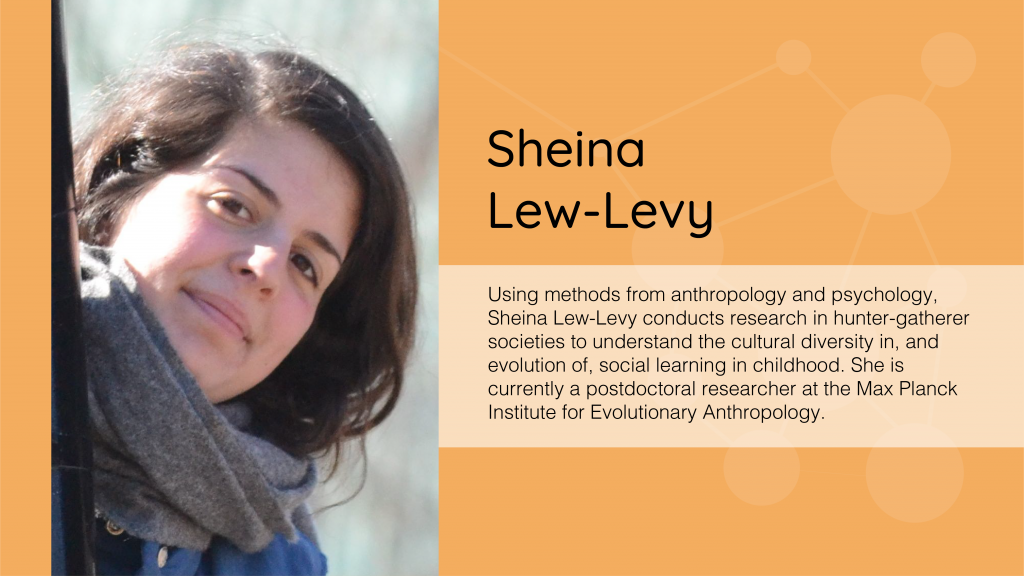
Title: Children as agents of cultural change in hunter-gatherer societies and beyond
Drawing upon systematic literature reviews and empirical research with Tanzanian Hadza and Congolese BaYaka, I outline cross-cultural similarities and differences in contemporary hunter-gatherer children’s learning. I show how play, teaching, participation, and imitation biases contribute to children’s acquisition of skill and cooperative norms. One striking cross-cultural similarity is the primacy of learning with and from peers in the mixed-sex multi-age playgroup. I argue that peer learning may contribute to more rapid, and potentially less costly, knowledge transfers in humans, and may also generate novel social norms and subsistence practices. I posit that children and adolescents may be overlooked agents of culture change throughout human history.
Keynote 2
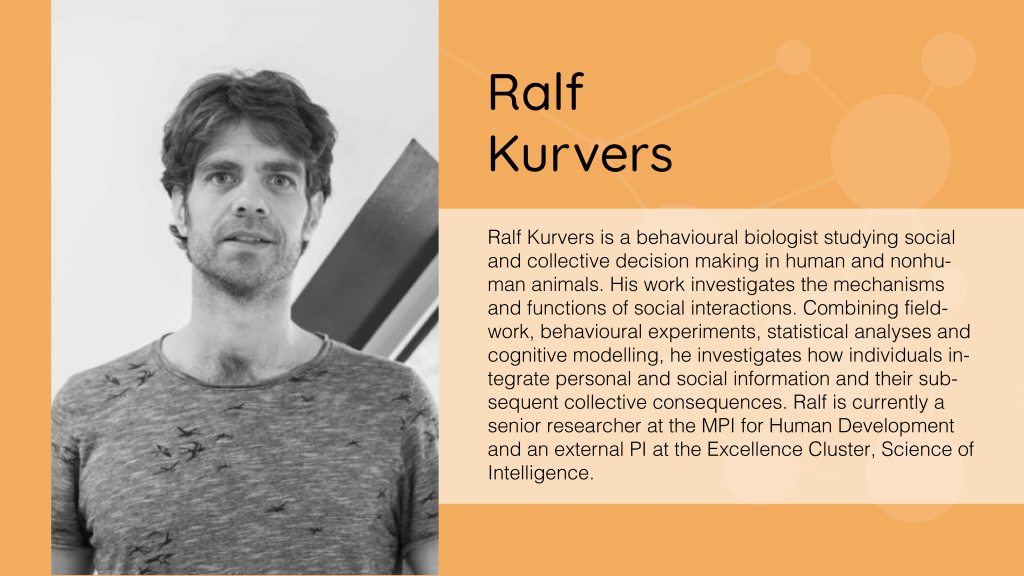
Title: How billfishes cooperatively hunt down schooling prey
The open ocean offers a suite of ecological conditions promoting the evolution of cooperative hunting, both within and between species. Whereas cooperative hunting in terrestrial systems typically takes the form of predators collectively taking down relatively large prey animals, cooperative hunting in open oceans is vastly different as the primary prey are large, mobile prey schools. We, however, know little about the strategies of cooperative hunting in open oceans due to the difficulty of quantifying these interactions. In this talk, I will give an overview of our recent work on studying the evolution of cooperative hunting strategies in the enigmatic taxa of billfish. Our work shows how the combination of competition and cooperation (both within and between species) has shaped the evolution of unique cooperative hunting strategies, as well as unique behavioural, morphological and social adaptations. Fuelled by novel technological advances, the open ocean offers a new frontier to understand the evolution of cooperative hunting.
Parallel Group Sessions
We will offer two group sessions, which will be run in parallel. Participants will be able to express their preference upon registration. The two sessions will follow the two main topics of the workshop, development and evolution.
Development Track: Computational models of the evolution of development
Sensitive periods, in which the impact of experience on traits is larger than in other periods, are widespread in nature, but their evolution is not well understood. Formal modelers have recently explored the conditions in which sensitive periods are favored by natural selection. These models capture development as a process in which organisms learn about their environments and tailor their phenotypes to the environmental state. In some models, the environmental state changes very slowly relative to an organism’s lifespan, remaining nearly stable within generations. In others, the environment fluctuates at a noticeable rate within generations as well. Collectively, these models provide insight into key features of sensitive periods (e.g., timing, duration) at different levels of organization: between species (e.g. some birds learn new songs only early in life, others throughout their lifetimes), between individuals (e.g. children maturing at different rates following adversity), and between systems (e.g. cognitive and emotional systems recalibrating at different rates to changed environmental conditions). In this workshop, we will discuss and explore mathematical models of the evolution of developmental plasticity, focusing on changing levels of plasticity across ontogeny, including sensitive and critical periods. We will cover the following methods: (Stochastic) Dynamic Programming, backward induction, forward simulation, analytic (closed-form) models.
Instructors

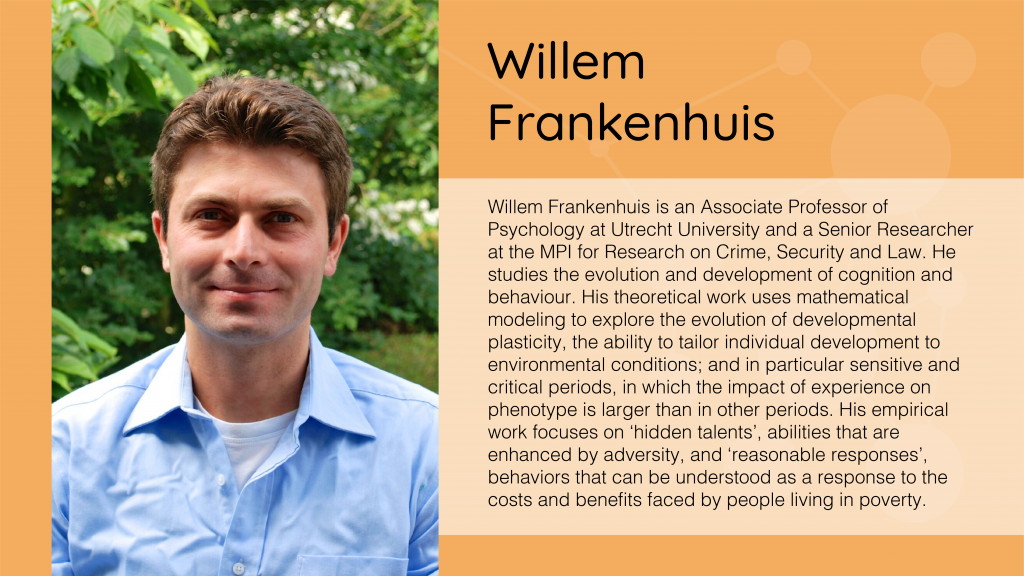
Evolution Track: Modeling the evolution of social transmission
Human cultural abilities, and particularly our reliance on building and improving skill and technology over generations, have been put forward as one of the main explanations for our species’ ecologic and demographic success. Much of the modeling work in cultural evolution has focused on understanding why and how human-like culture evolves and under which conditions it is adaptive. This has been a productive avenue of research, and we now have a good understanding of how different modes of transmission (e.g. vertical, horizontal, oblique), social learning strategies (e.g. prestige bias, conformity bias), and learning mechanisms (e.g. copying, refinement, recombination) have evolved to ensure the successful transmission of useful knowledge under different demographic and environmental conditions. This workshop will give an overview of the modeling literature on social learning and cultural transmission, focusing in particular on models of cumulative cultural evolution and collective problem-solving. In the practical session, we will proceed to implement one of the models.
Instructors
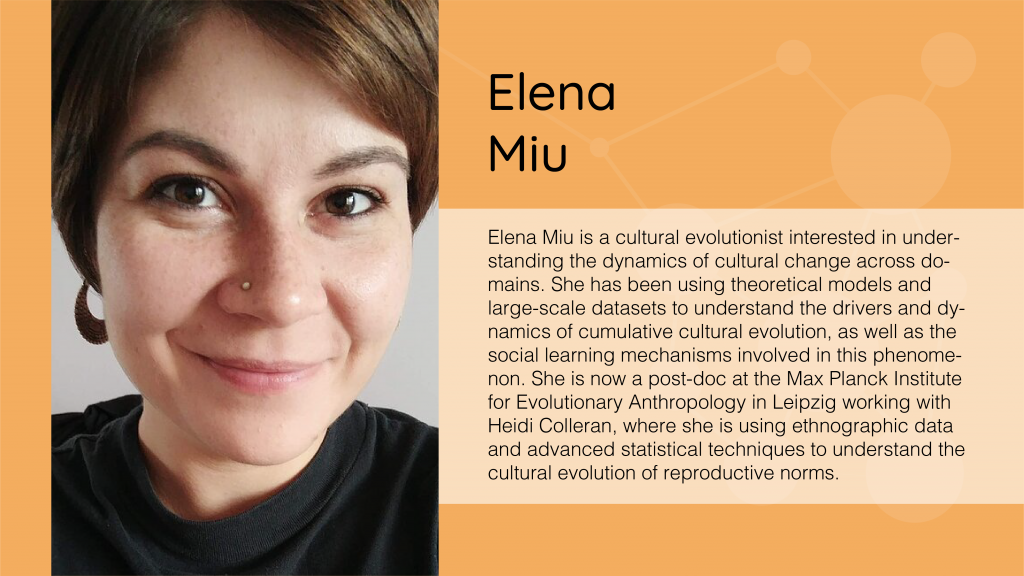
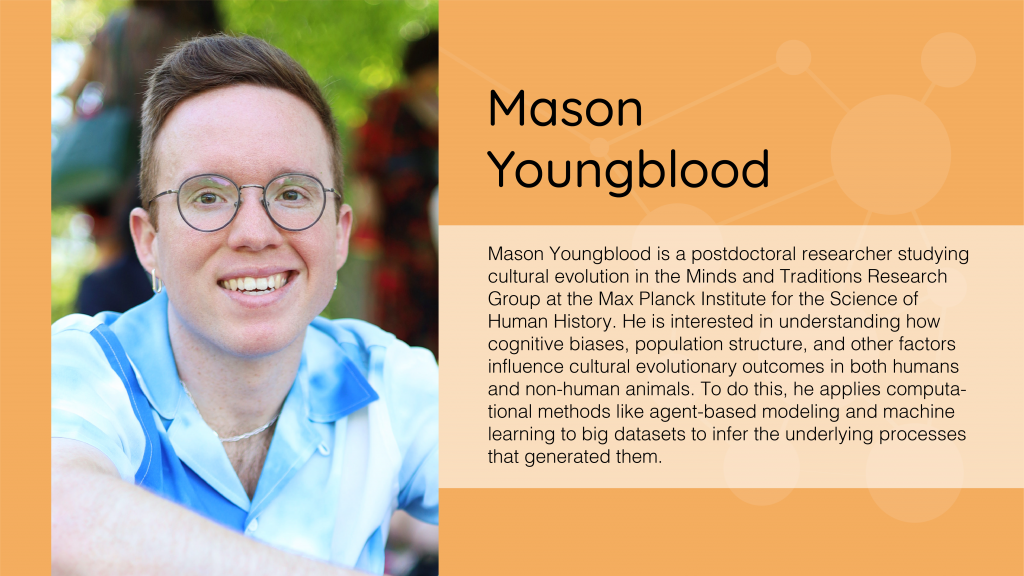
Details
Required Knowledge and Programming Languages
The workshops are designed to be accessible to people with none or little prior modeling experience. Being familiar with a programming language, such as R and/or Python is desirable, as it will result in an optimal learning experience. Detailed information on language(s) and package(s) to install, including some basic tutorials, will be shared with participants so that it will be possible to prepare accordingly before the start of the workshop.
We encourage all early career researchers in the field of social learning to apply, particularly those from underrepresented backgrounds.
Covid-19 Policy
We hope to host the workshop in-person. We will however keep monitoring the situation and update participants of any change in this regard.
Fee
The workshop fee will be 30 Euros. This will include access to the full workshop program, drinks, and snacks. The registration for the social event will be separate from the main workshop. We offer to waive the fees for participants who are unable to afford it or cannot get a reimbursement from their institutions. For more information, please email us at .
Workshop Location
The workshop will be held on the University of Amsterdam Roeterseiland Campus (https://campus.uva.nl/roeterseiland/roeterseilandcampus.html). The exact rooms and details on how to reach them will be shared with participants in the days prior to the workshop.
Accomodation
Participants will have to arrange their own accommodation. We can recommend the following hotels based on previous positive experiences and distance to the workshop location:
Option 1: Hotel Arena, https://www.hotelarena.nl/en
Option 2: Hotel Casa, https://hotelcasa.nl/
Option 3: Student Hotel, https://www.thestudenthotel.com/amsterdam-city/
Contact
If you have any questions regarding the workshop, please email us at .